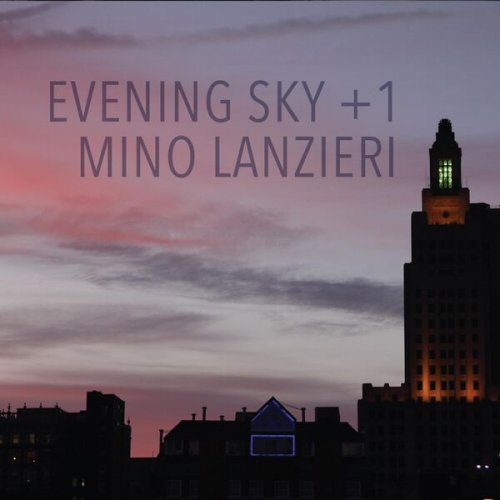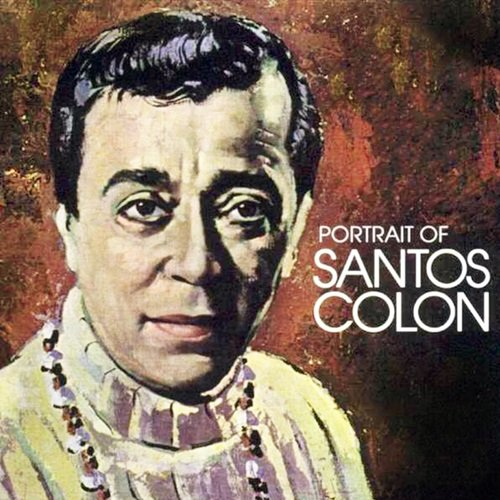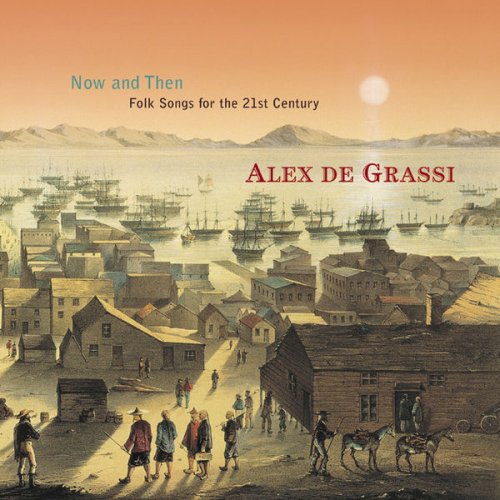Canned Heat - Uncanned! The Best Of Canned Heat (1994)
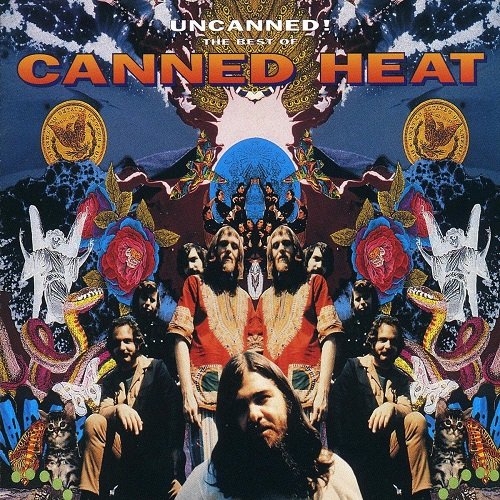
Artist: Canned Heat
Title: Uncanned! The Best Of Canned Heat
Year Of Release: 1994
Label: EMI Catalog
Genre: Blues Rock
Quality: Mp3 320 / Flac (tracks)
Total Time: 02:32:52
Total Size: 381/961 Mb
WebSite: Album Preview
Tracklist:Title: Uncanned! The Best Of Canned Heat
Year Of Release: 1994
Label: EMI Catalog
Genre: Blues Rock
Quality: Mp3 320 / Flac (tracks)
Total Time: 02:32:52
Total Size: 381/961 Mb
WebSite: Album Preview
CD 1:
01. On The Road Again 7:06
02. Nine Below Zero 4:09
03. TV Mama 6:23
04. Rollin' And Tumblin' (Stereo Version) 3:06
05. Bullfrog Blues (Stereo Version) 2:19
06. Evil Is Going On 2:21
07. Goin' Down Slow 3:45
08. Dust My Broom (Stereo Version) 3:16
09. Help Me 3:08
10. The Story Of My Life 3:39
11. The Hunter 3:39
12. Whiskey And Wimmen' 4:01
13. Shake, Rattle And Roll 2:44
14. Mean Old World 3:27
15. Fannie Mae 3:07
16. Gotta Boogie (The World Boogie) 9:57
17. My Crime 3:58
18. On The Road Again 5:03
CD 2:
01. Evil Woman 3:01
02. Amphetamine Annie 3:58
03. An Owl Song 2:45
04. Terraplane Blues 3:23
05. Christmas Blues 7:36
06. Going Up The Country 2:52
07. Time Was 3:38
08. Low Down (And High Up) 2:53
09. Same All Over 2:50
10. Big Fat (The Fat Man) 1:59
11. It's All Right 5:37
12. Poor Moon 3:25
13. Sugar Bee 2:37
14. Shake It And Break It 2:33
15. Future Blues 2:59
16. Let's Work Together 3:12
17. Wooly Bully 2:31
18. Human Condition 5:25
19. Long Way From L.A. 3:06
20. Hill's Stomp 3:03
21. Rockin' With The King 3:16
22. Harley Davidson Blues 2:35
23. Rock & Roll Music 2:30
A hard-luck blues band of the '60s, Canned Heat was founded by blues historians and record collectors Alan Wilson and Bob Hite. They seemed to be on the right track and played all the right festivals (including Monterey and Woodstock, making it very prominently into the documentaries about both) but somehow never found a lasting audience.
Their hearts were certainly in the right place. Canned Heat's debut album -- released shortly after their appearance at Monterey -- was every bit as deep into the roots of the blues as any other combo of the time mining similar turf, with the exception of the original Paul Butterfield band. Hite was nicknamed "The Bear" and stalked the stage in the time-honored tradition of Howlin' Wolf and other large-proportioned bluesmen. Wilson was an extraordinary harmonica player, with a fat tone and great vibrato. His work on guitar, especially in open tunings (he played on Son House's rediscovery recordings of the mid-'60s, incidentally) gave the band a depth and texture that most other rhythm players could only aspire to. Henry Vestine -- another dyed-in-the-wool record collector -- was the West Coast's answer to Michael Bloomfield and capable of fretboard fireworks at a moment's notice.
Canned Heat's breakthrough moment occurred with the release of their second album, establishing them with hippie ballroom audiences as the "kings of the boogie." As a way of paying homage to the musician they got the idea from in the first place, they later collaborated on an album with John Lee Hooker that was one of the elder bluesman's most successful outings with a young white (or Black, for that matter) combo backing him up. After two big chart hits with "Goin' Up the Country" and an explosive version of Wilbert Harrison's "Let's Work Together," Wilson died under mysterious (probably drug-related) circumstances in 1970, and Hite carried on with various reconstituted versions of the band until his death from a heart seizure just before a show in 1981.
The surviving members -- led by drummer Adolfo "Fito" de la Parra -- continued touring and recording, recruiting new vocalist Walter Trout; he was replaced in 1985 by James Thornbury, who fronted the band for the next decade. After Thornbury exited in 1995, Canned Heat tapped Robert Lucas to assume lead vocal duties; they soon recorded The Canned Heat Blues Band, which sadly was Vestine's last recording with the group -- he died in Paris in October 1997 in the wake of the band's recent tour. Boogie 2000 followed two years later.
Their hearts were certainly in the right place. Canned Heat's debut album -- released shortly after their appearance at Monterey -- was every bit as deep into the roots of the blues as any other combo of the time mining similar turf, with the exception of the original Paul Butterfield band. Hite was nicknamed "The Bear" and stalked the stage in the time-honored tradition of Howlin' Wolf and other large-proportioned bluesmen. Wilson was an extraordinary harmonica player, with a fat tone and great vibrato. His work on guitar, especially in open tunings (he played on Son House's rediscovery recordings of the mid-'60s, incidentally) gave the band a depth and texture that most other rhythm players could only aspire to. Henry Vestine -- another dyed-in-the-wool record collector -- was the West Coast's answer to Michael Bloomfield and capable of fretboard fireworks at a moment's notice.
Canned Heat's breakthrough moment occurred with the release of their second album, establishing them with hippie ballroom audiences as the "kings of the boogie." As a way of paying homage to the musician they got the idea from in the first place, they later collaborated on an album with John Lee Hooker that was one of the elder bluesman's most successful outings with a young white (or Black, for that matter) combo backing him up. After two big chart hits with "Goin' Up the Country" and an explosive version of Wilbert Harrison's "Let's Work Together," Wilson died under mysterious (probably drug-related) circumstances in 1970, and Hite carried on with various reconstituted versions of the band until his death from a heart seizure just before a show in 1981.
The surviving members -- led by drummer Adolfo "Fito" de la Parra -- continued touring and recording, recruiting new vocalist Walter Trout; he was replaced in 1985 by James Thornbury, who fronted the band for the next decade. After Thornbury exited in 1995, Canned Heat tapped Robert Lucas to assume lead vocal duties; they soon recorded The Canned Heat Blues Band, which sadly was Vestine's last recording with the group -- he died in Paris in October 1997 in the wake of the band's recent tour. Boogie 2000 followed two years later.
![Kim XueYang - Groove In Silence (2025) [Hi-Res] Kim XueYang - Groove In Silence (2025) [Hi-Res]](https://www.dibpic.com/uploads/posts/2025-12/1766936899_cover.jpg)
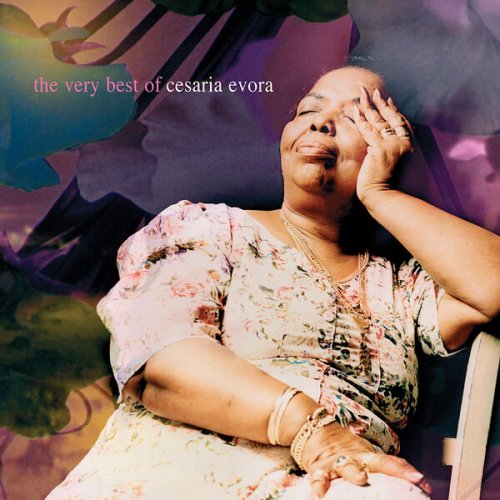
![Nahokimama, Toshiki Soejima - Kimama Beats (2025) [Hi-Res] Nahokimama, Toshiki Soejima - Kimama Beats (2025) [Hi-Res]](https://img.israbox.com/img/2025-12/29/i50g7o4brwn6lxr9j9oubdpt7.jpg)
